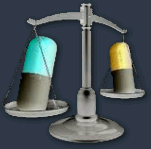Article 46 C.C.P., “inherent” powers of Quebec courts
EXTRACT
Updated to 1 September 2015
© Éditeur officiel du Québec
This document has official status. [Only online by the government]
Chapter C-25
Code of Civil Procedure
BOOK I
GENERAL PROVISIONS
TITLE II
THE COURTS
CHAPTER III
POWERS OF COURTS AND JUDGES
SECTION I
GENERAL POWERS
46. The courts and judges have all the powers necessary for the exercise of their jurisdiction.
They may, at any time and in all matters, whether in first instance or in appeal, issue orders to safeguard the rights of the parties, for such time and on such conditions as they may determine. As well, they may, in the matters brought before them, even on their own initiative, issue injunctions or reprimands, suppress writings or declare them libellous, and make such orders as are appropriate to deal with cases for which no specific remedy is provided by law.
1965 (1st sess.), c. 80, a. 46; 2002, c. 7, s. 7.
47. The majority of the judges of each court, either at a meeting convened for the purpose by the chief justice, or by way of a consultation, held and certified by him, by mail, may make, for one or more judicial districts, the rules of practice judged necessary for the proper carrying out of this Code. The majority of the judges of the Superior Court appointed either for the district of Montréal or for the district of Québec may nevertheless replace, amend or complete such rules by special rules applicable in their respective districts only.
Similarly, the majority of the judges of each court may make tariffs of fees for commissioners and other officers appointed by the court, whose remuneration is not, by law, fixed by the Government; such tariffs must be promulgated in the manner prescribed for rules of practice.
This article does not apply to municipal judges appointed pursuant to the Act respecting municipal courts (chapter C-72.01).
1965 (1st sess.), c. 80, a. 47; 1969, c. 81, s. 3; 1972, c. 70, s. 2; 1975, c. 83, s. 7; 1988, c. 21, s. 81; 1989, c. 52, s. 124.
48. The rules of practice come into force 10 days after publication in the Gazette officielle du Québec.
Immediately after such publication they must be copied into the registers kept for the purpose by the clerks, and notice thereof must be posted in the office of the court in each of the districts where they apply.
1965 (1st sess.), c. 80, a. 48; 1992, c. 57, s. 420.
48.1. In the case of the Court of Québec, the rules of practice are made and come into force in accordance with the provisions of the Courts of Justice Act (chapter T-16).
1988, c. 21, s. 82.
- Some reflections on quarrelsomeness and the abusive exercise of the right to institute legal proceedings by Yves-Marie Morissette (2002)
- Detailed CV of Professor Yves-Marie Morissette (English) (2002)
- Détournement des fins du pouvoir législatif 101 / Abuse of legislative power 101 By “The Papillon Task Force”
- Detailed CV of Dr. Jacques Gagnon (English) (2011)
- Portrait du plaideur quérulent / Portrait of the Querulous Litigant by Rémi Danylo
- Unusually persistent complainants, Lester et als, The British Journal of Psychiatry, March 2004
- In defence of complainants, Dr. R. Pal, The British Journal of Psychiatry, July 2004
- 1. Extreme Behavior
- 2. Querulousness by Jacques Gagnon M.D., CSPQ, FRCP, Psychiatrist (2008)
- 3. Judicial Control of Querulous Litigants by Mr. Justice Yves-Marie Morissette, Quebec Court of Appeal (2008)
- 4. A Portrait of Querulous Behavior (2008)
- 5. Evaluation de la dangerosité du malade mental psychotique / Dangerousness evaluation of psychotic patient

Yves-Marie Morissette's Poster Boy for 'Legalizing' Chemical Lobotomies: Valéry Fabrikant
- «La magistrature a un rôle à jouer pour éviter les dérapages: Les abus de procédures» / “The magistrature has a role to play to avert hijackings of judicial process: the abuse of procedures” (2000)
- «Pathologie et thérapeutique du plaideur trop belliqueux» / “Pathology and Therapeutic of the Warlike Litigant“, Yves-Marie Morissette (2002)
- Quelques réflexions sur la quérulence et l’exercice abusif du droit d’ester en justice / Some reflections on quarrelsomeness and the abusive exercise of the right to institute legal proceedings, Yves-Marie Morissette (2002)
- «Ontologie de la quérulence» / "The Ontology of Quarrelsomeness" (2002)
- «Se Représenter Seul» / "Without A Lawyer" (2002)
- «Les plaideurs compulsifs, des obsédés du tribunal» / "Compulsive litigants, obsessed with the courts" (2006)
- «Les quérulents… on en connaît tous un ou une !» / "Querulents… we all know one!" (2006)
- «Les quérulents : la hantise de nos tribunaux» / "The Querulents: our courts are in fear of them"
- 2009-05-26 (Quebec Hansard) of the Committee on Institutions Final Version) on the addition of Art. 54.1 (quarrelsomeness) to the Code of Civil Procedure
- «Quérulent au Québec et au Dakota du Nord, mais pas au Massachusetts?» / "Querulous in Quebec and North Dakota, but not in Massachusetts…" (The Papillon Task Force) (2013)
- «Le Juge Yves-Marie Morissette de la Cour d’appel: La référence en quérulence au Québec» / "Judge Yves-Marie Morissette of the Court of Appeal: the Reference on Querulence in Quebec" (The Papillon Task Force) (2013)
- Important resource: Annotated Article 54.5 CCP - English translation of case law summaries of "judicial declarations of madness"
- 2010 – Congrès annuel du Barreau du Québec : Seul devant la Cour / Alone before the Court by Maria De Michele
- Yves-Marie Morissette: Selected Quotations
- Detailed CV of Professor Yves-Marie Morissette (English) (2002)
- Detailed CV of Dr. Jacques Gagnon (English) (2011)
- Barreau du Québec v. Siminski, 500-05-046728-984, (12 May 1999)
- Détournement des fins du pouvoir législatif 101 / Abuse of legislative power 101 By “The Papillon Task Force”

- Article: The legal initiative doomed to failure and the responsibility of the lawyer or of his mandatary (1984)
- Article: The magistrature has a role to play to avert hijackings of judicial process: the abuse of procedures (2000)
- Article: Pathology and Therapeutic of the Warlike Litigant (2001 & 2002)
- Conference Article: Some reflections on quarrelsomeness and the abusive exercise of the right to institute legal proceedings (2002)
- Conference News: Supreme Court and media on the program for Congress 2002
- Article: Se Représenter Seul (Without A Lawyer) (2002)
- Interview: Ontologie de la quérulence (The Ontology of querulence) (2002)
- Article: Abuse of right, quarrelsomeness and non-represented parties (2003)
- Conference News: Querulents… we all know one! (Les quérulents... on en connaît tous un ou une !) (2006)
- Law News: Votre client est-il quérulent ? (Is Your Client a “Querulent”?) (2014)
- Article [Note]: Case management, proportionality and civil proof: the provisional state of the questions (2009)
- Article: Case management, proportionality and civil proof: the provisional state of the questions, Yves-Marie Morissette (2009)

- Quotations on "Inherent Power" and on "Inherent Jurisdiction"
- Sec. 92, Article 14. (1867) The administration of justice in the Province
- Inherent Jurisdiction And Inherent Powers In New Zealand, Rosara Joseph
- The Inherent Jurisdiction of the Court, I. H. Jacob
- Inherent Jurisdiction and Inherent Powers of Irish Courts, Joan Donnelly
- Judicial Control of Vexatious Activity in the Courts (Summary of UK Approach)
- Canadian Charter of Rights and Freedoms, Section 7 - Life, liberty and security of person (Annotated, CCRD)
- Canadian Charter of Rights and Freedoms, Section 8 - Search or seizure (Annotated, CCRD)
- Canadian Charter of Rights and Freedoms, Section 9 - Detention or imprisonment (Annotated, CCRD)
- Canadian Charter of Rights and Freedoms, Section 10(a) - Right to be Informed of Reasons for Arrest (Annotated, CCRD)
- Canadian Charter of Rights and Freedoms, Section 10(b) - Right to Retain Counsel (Annotated, CCRD)
- Canadian Charter of Rights and Freedoms, Section 10(c) - Right to Habeas Corpus (Annotated, CCRD)
- Le Juge Yves-Marie Morissette de la Cour d’appel: La référence en quérulence au Québec par "Le Commission Papillon" / Judge Yves-Marie Morissette of the Court of Appeal: The Reference in Querulence in Quebec By "The Papillon Task Force"
- Quérulent au Québec et au Dakota du Nord, mais pas au Massachusetts…/ Querulous in Quebec and North Dakota, but not in Massachusetts… By “The Papillon Task Force”
- Détournement des fins du pouvoir législatif 101 / Abuse of legislative power 101 By “The Papillon Task Force”
- Les plaideurs compulsifs, des obsédés du tribunal (Compulsive litigants, obsessed with the courts)
- Plaideurs compulsifs: des cas psychiatriques à traiter? (Compulsive litigants: psychiatric cases to treat?)
- "Articles 54.1 et seq. of the Code of Civil Procedure, where are we now?" (2014) (Maître Philippe Chagnon)
- Les quérulents : la hantise de nos tribunaux / The Querulents: our courts are in fear of them by Charles Meunier
- 1998: Cuts to Legal Aid Add 7000 Lawyerless Litigants to the Roles* (translation pending)
- Big Corporations with Limitless Funds are the Uncontested Champions of Court Warfare
- Portrait du plaideur quérulent / Portrait of the Querulous Litigant by Rémi Danylo (L'Obiter)
- Alerte aux plaignards professionnels. Les citoyens «déraisonnables» font la vie dure aux organismes publics (16 janvier 2016)/ Warning to professional complainers. “Unreasonable” citizens make life hard for public agencies (January 16th, 2016)
- Quebec press and media are instilling a Soviet mentality of fear and repression in Quebec to silence political and personal freedom
- Extract from the Corrected Version of the Law Reform Committee (Australia) Inquiry into Vexatious Litigants (2008)
- In defence of complainants, Dr. R. Pal
- How I Punished a Crooked Lawyer
- Tweedle Yves and Tweedle Évens
- Shrinking the Freedom of Thought: How Involuntary Psychiatric Treatment Violates Basic Human Rights
- Why I learned law and stopped hiring lawyers
- Canada’s Legal Profession: Self-Regulating in the Public Interest?
- Welcome to JudicialMadness
- Soviet psychiatric drug for dissidents given to U.S. patients
- Echoes of the Past: Punitive Psychiatry by Alexander Podrabinek
- Soviet Psychiatry Returns
- Soviet Forever by Alexander Podrabinek
- The “Catastrophe” is Returning: Old KGB-ers are Reviving the Soviet System
- Abuse of Process
The social tyranny of extorting recantation, of ostracism and virtual outlawry as the new means of coercing the man out of line, is the negation of democracy.

